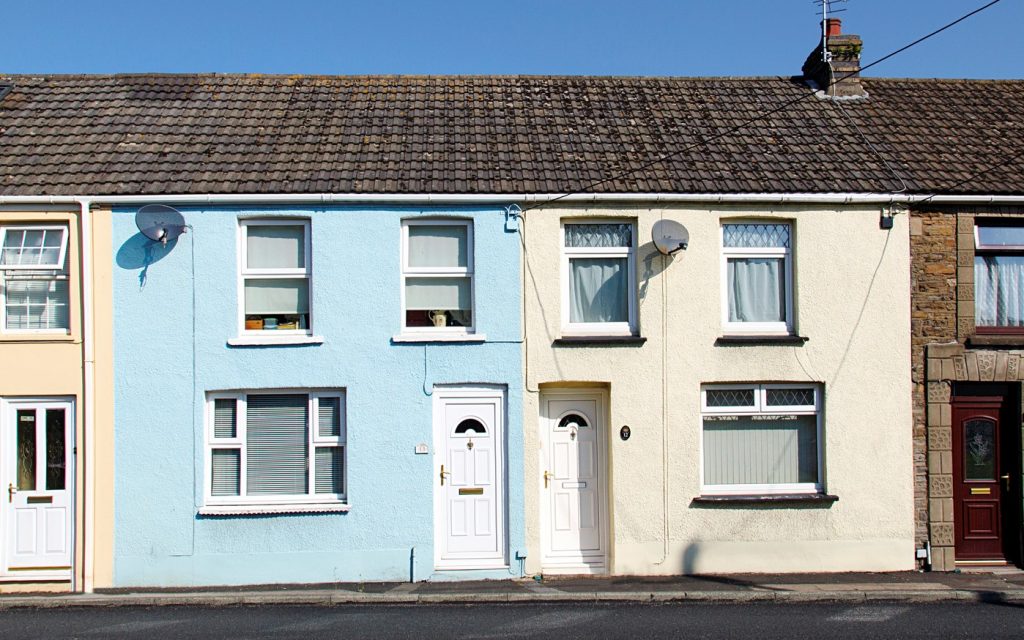 Housing
Housing 
Today the Bevan Foundation publishes a new report looking at how people on low incomes are supported with their housing costs in Wales. Steffan Evans sets out some more information on some of the report’s key findings.
The coronavirus crisis has reminded us, if we ever needed reminding, how important it is that everyone has access to a warm, safe and secure home. For too many in Wales the cost of securing such a home is unaffordable. Housing is the largest living cost faced by most people across the nation. Add in utility bills and Council Tax on top of rent or mortgage repayments and the cost of housing alone can push some into poverty. To help ease some of these pressures the Welsh Government and local authorities administer a number of support schemes that provide direct cash support, or services in lieu of cash to people who are low incomes. Whilst thousands of people value the support these schemes provide, research undertaken by the Bevan Foundation as part of a broader project on the “Welsh Benefits System” has found that there is scope to improve these schemes to ensure that housing forms part of the solution to poverty rather than act as a driver.
The Welsh Government and Welsh local authorities spend nearly £350 million a year on just 5 schemes that provide people on low incomes with support with their housing costs, on top of what they receive through the UK social security system. The type of support provided by the schemes range from support with Council Tax (Council Tax Reduction Scheme), to support with making adaptions to homes (the Disabled Facilities Grant and the Warm Homes Programme Nest) to support at times of crisis (the Discretionary Assistance Fund and Discretionary Housing Payments). Each scheme provides vital support to many across Wales. The fact that the Welsh Government has increased its budget for the Discretionary Assistance Fund by £11 million due to the upsurge in demand as a result of the coronavirus, or the reports about the increase in applications for the Council Tax Reduction Scheme, demonstrates this clearly. There are important shortcomings however, in the way that support is provided.
First, support is difficulty to access. Not one of the support schemes share the same eligibility criteria whilst there is significant variation in the way that some of the schemes are administered in different parts of Wales.
Second, the support provided is not always sufficient. We found evidence that many households are being left short, with the amount of support available being curtailed due to arbitrary and administrative variation.
Third, the schemes are not always being used for the purpose they were originally designed for. Discretionary, emergency support is increasingly being relied upon over the long term by households who are trapped in poverty because of failures in the broader UK social security system and within the Welsh housing market.
In our report, published today, we have identified some short term and long term options for reform that the Welsh Government and Welsh local authorities could undertake to address these concerns. In the short term we have identified a range of technical, administrative fixes that we believe the Welsh Government and local authorities could implement quickly and which would have a significant benefit on people’s lives.
In the longer term however, we believe that there is a need for more radical reform if housing is to be part of the solution to poverty. Amongst the potential options we identify are:
- Reforming Council tax – including abolishing the single person discount and reinvesting the funds into the Council Tax Reduction Scheme and replacing Council Tax with a more progressive tax.
- Constructing more social housing with greater use of public funds to reduce pressure on social landlords to increase rents.
- The devolution of Discretionary Housing Payment and moving the scheme onto a demand led footing.
- The devolution of further powers over social security, including some powers over Housing Benefit, the housing element of Universal Credit and Winter Fuel Payments.
- The development of a Welsh Housing Guarantee that would pull together all the various streams of support into one, easy to access fund for low income households.
The Bevan Foundation will be continuing its work looking at the “Welsh Benefits System” and will publishing further reports over the summer. To make sure you’re amongst the first to hear about our work make sure you sign up for our free newsletter.
Dr Steffan Evans is a Policy and Research Officer at the Bevan Foundation


